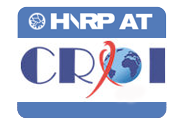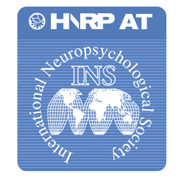Dr. Davey Smith Receives a 2012 NIDA Avant-Garde Award for HIV/AIDS Research
Dr. Davey Smith received a $2.5 million grant from NIDA for HIV/AIDS research for his proposal to track HIV via transmission networks. The overall goal of transmission network identification is to concentrate treatments/interventions on the individuals where the most gain in reduced HIV transmission would likely be achieved.
Click Here to learn more about the Avant-Garde award.
Click Here to watch a KPBS interview with Dr. Davey Smith
Katie Doyle Submitted Top Rated Blue Ribbon Award Winning Abstract to the APA 2012 Convention
The American Psychological Association (APA) 2012 Convention is held in Orlando, Florida on August 2nd – 5th. Annually the APA Division 40 Awards Committee reviews abstracts for scientific merit and impact. Katie Doyle’s abstract “HIV-associated Prospective Memory Impairment is Associated with Strategic Monitoring Deficits” was judged to be the number one submission this year! Ms. Doyle will receive a $1000 cash award and has also received an invitation to present in the “Psychological Science Idol (PSI) : 6th Annual Datablitz” session featuring excellent graduate student posters and papers.
Click Here for redirect to the convention website.
Biomarkers for NeuroAIDS: Recent Progress in the Field
Several HNRP investigators presented at the Biomarkers for NeuroAIDS: Recent Progress in the Field conference held on June 5, 2012 at the University of Nebraska Medical Center. This meeting highlighted the work of the National Institute of Mental Health NeuroAIDS Centers and other outstanding researchers in the field.
Dr. Cris Achim presented "Clinico-pathologic Correlates and Potential Biomarkders in HIV Associated Neurocognitive Decline (HAND)". Dr. Igor Grant presented "Current Status of HAND and Perspectives from the ARC Biomarker Project", Dr. Ron Ellis presented "Elevated sCD163 is a Marker of Neurocognitive Impairment in HIV-infected Individuals on Effective ART".
Click here to watch the conference.
Please refer to the following start times to locate HNRP investigator presentations:
-
Dr. Cris Achim (0:10:12)
Dr. Igor Grant (2:27:20)
Dr. Ron Ellis (4:06:45)
HNRP Investigators Present at ISNV and All Receive Travel Awards
The 11th International Symposium on NeuroVirology (ISNV) will start on May 29, 2012 in New York, NY. The overall goal of the meeting is to provide investigators working in the field of neurovirology and related areas with leading edge information so that new preventative and therapeutic strategies effective against neurologic diseases associated with prions, HIV, and other viral and non-viral pathogens can be identified.
Dr. Ron Ellis' CHARTER Abstract Highlighted at American Academy of Neurology Meeting
Dr. Ron Ellis' abstract derived from CHARTER data was determined to be among the top 5% of submissions to the 2012 American Academy of Neurology (AAN) Meeting. The abstract "A Common Polymorphism in the COMT Gene Confers an Increased Risk of Neuropathic Pain in HIV Sensory Neuropathy" will be highlighted at the Scientific Program Highlights Plenary Session on Friday, April 15 and will be presented at the main meeting taking place in New Orleans April 21-28.






